In this article:
Gingivitis is a common oral health problem and refers to the inflammation of gums caused by plaque or bacterial accumulation. It can be easily treated with self-care measures and home remedies. However, for persistent gingivitis, it is best to consult a dentist.
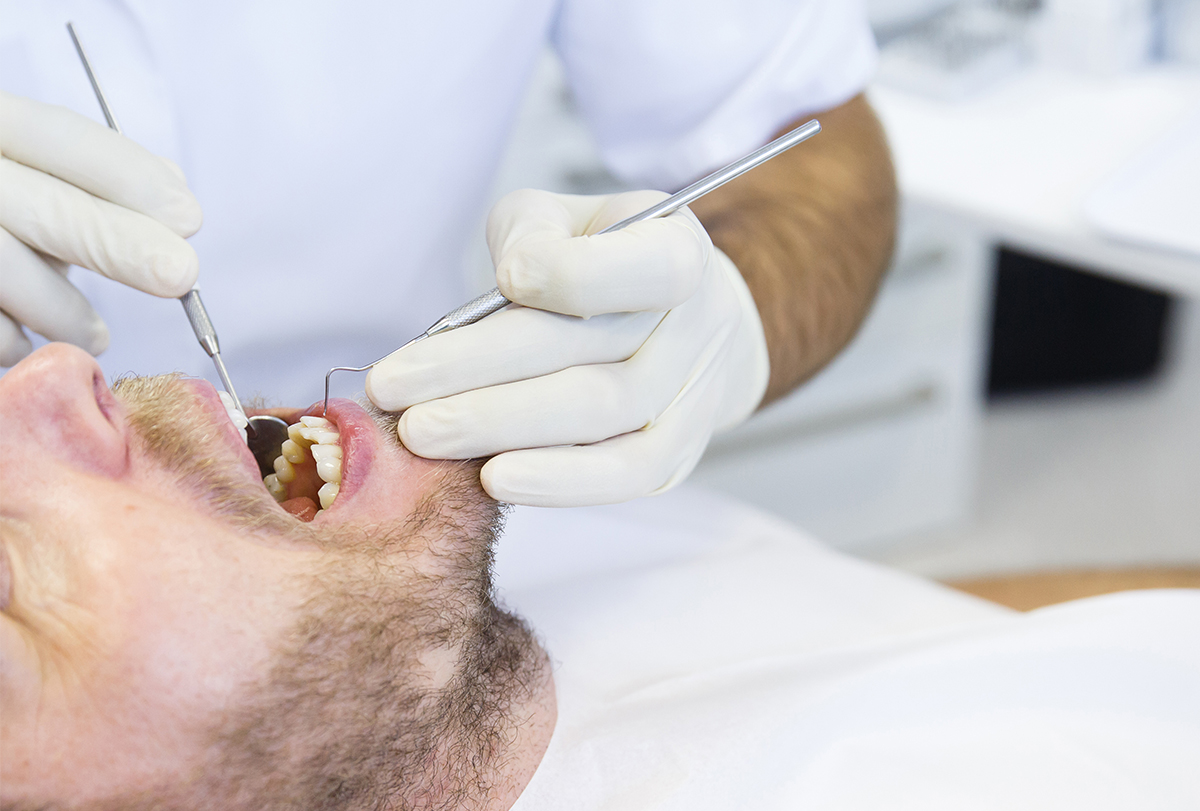
Home Remedies for Gingivitis
You can take various measures at home to help prevent or treat gingivitis.
1. Chew guava leaves
Guava leaves may exhibit some degree of antioxidant, anti-inflammatory, antimicrobial, and pain-relieving properties.
How to use:
- Directly chew a few guava leaves.
- Grind guava leaves into a paste and then brush your teeth with it. (1)
2. Consider baking soda
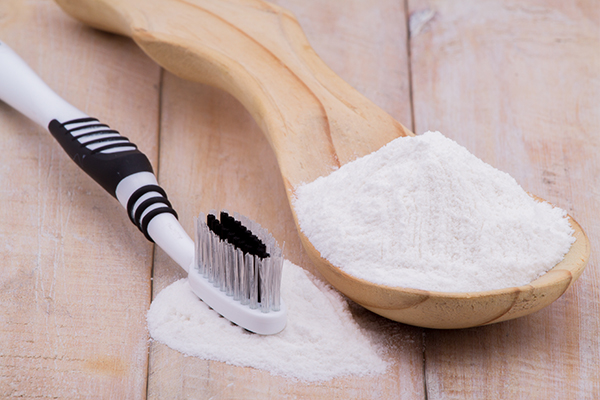
Baking soda is an alkalizing agent that can help bring down the acidity in your mouth, provided it is used properly. It is also a natural antiseptic, which may help reduce the risk of tooth decay, gum disease, and oral infections. (2)
How to use:
- Make a mouth-cleansing paste by adding a few drops of warm water to a small amount of baking soda.
- Apply it on the swollen gums for a few minutes.
- Rinse your mouth with water.
3. Chew a miswak stick
Chewing a miswak stick enhances salivary flow and alters the salivary composition, making your oral environment less conducive for the growth of bacteria and dental demineralization.
The cleansing action of miswak may even supersede that of the toothbrush. (3)(4)
4. Use turmeric
Curcumin, the main active component of turmeric, packs a lot of antioxidants, astringent, anti-inflammatory, and antimicrobial properties. These properties can be utilized in the treatment, management, and prevention of periodontal diseases such as gingivitis.
How to use:
- Turmeric may help bring down gingival swelling when used topically as a part of an oral gel. (5)(6)
- Turmeric mouthwash has been found to exhibit similar properties as chlorhexidine gluconate mouthwash. (7)(8)
Note: Despite these merits, it is always recommended to consult your doctor before incorporating turmeric in your regular oral hygiene practices.
Curcumin may help promote your oral health by curbing bacterial activity and the resultant plaque formation. By improving your plaque scores, this therapeutic agent may help decrease the gingival pain, swelling, and bleeding associated with gingivitis.
5. Practice oil pulling

If done regularly and properly, oil pulling may inhibit the formation of plaque and strengthen your gums, both of which can help alleviate gingivitis. (9) Coconut oil may be used (10) for this purpose.
How to use:
Squish a small amount of oil in your mouth for about 15–20 minutes and then spit it out. This is done to draw out the food particles, bacteria, and other impurities in your mouth.
Note: Do not gargle or swallow the oil. You must ask your dentist to explain the basics of this technique and any precautions that may go with it. To avoid any undue reactions, it is advised not to attempt this procedure without consulting your dentist first.
Oil pulling can be a beneficial adjunctive therapy for the prevention and treatment of gingivitis, provided that you do it properly.
6. Use herbal rinses
Certain herbs, including clove, tea tree, neem, and basil, may inhibit the growth of oral bacteria and plaque formation. Rinsing your mouth with a herbal mouthwash that contains such protective agents may offer a comprehensive and long-lasting disinfecting effect. (11)
A study favored the use of a herbal mouthwash containing cardamom, peppermint oil, carom seeds, Indian wintergreen, piper betel, and beleric as an adjunct therapy for gingivitis and plaque formation. (12)
Other herbal mouthwashes that help improve gingivitis symptoms include:
Note: Dilute tea tree oil before using to avoid any adverse reactions. Be sure to spit the solution out after rinsing your mouth with it.
An herbal mouthwash can enhance your oral health when used in combination with other oral hygiene measures. This form of supportive care may be especially helpful for people with gingivitis or gum swelling.
7. Use clove
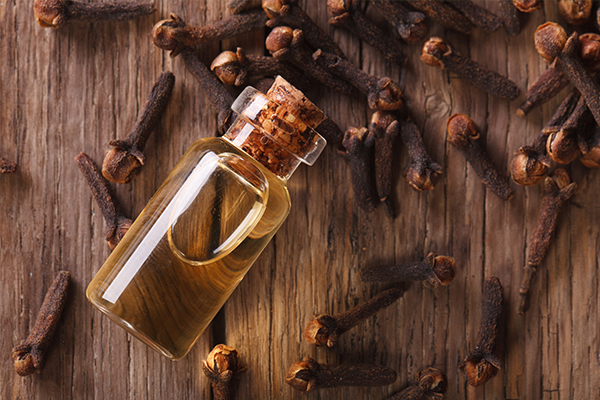
Clove oil is known for its analgesic, local anesthetic, anti-inflammatory, and antibacterial effects. It helps in reducing plaque and gingivitis. (11)
How to use:
- Place a clove under your affected teeth to help subside the inflammation.
- Use any toothpaste with clove as a major ingredient.
8. Rinse with apple cider vinegar
The acidity of apple cider vinegar (ACV) helps restore the pH balance in the mouth, helping prevent bacterial growth and plaque.
How to use:
Dilute 1 tablespoon of ACV in 1 glass of water and use this mixture to rinse your oral cavity. This remedy can be used two to three times daily.
Note: Always dilute ACV before use. Avoid using the remedy more frequently than suggested or consuming any acidic substance for up to 2 hours after ACV rinse since high acidity can affect the enamel.
Self-Care Tips for Gingivitis
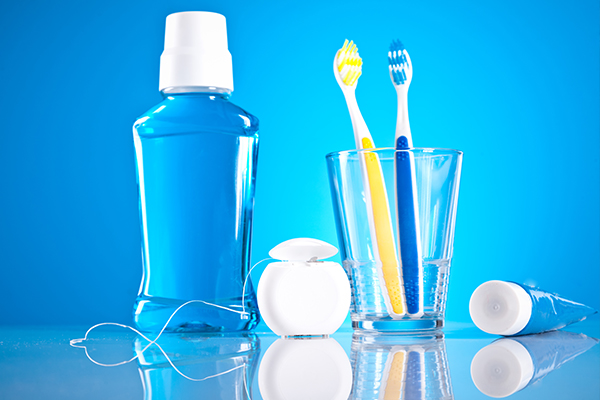
These tips can help in the prevention of gingivitis:
- Discard your old toothbrush: Discard your toothbrush as soon as the bristles start to give way and appear damaged. It is best to switch your old toothbrush with a new one every 3–4 months.
- Use a fluoride-based toothpaste: It is credited with significant antibacterial and antiseptic potential and is highly recommended by oral health experts for the prevention of gum disease.
- Floss your teeth: Regularly floss your teeth at least two times daily to remove the gunk and bacteria lodged between your gums and teeth.
- Use an electric toothbrush: If you can, use an electric toothbrush. It has better efficiency in plaque removal.
- Use a water pick: A water pick is a useful tool for patients with extensive dental work such as bridges and dental implants.
- Practice tongue scraping: Practice regular tongue scraping, at least once a day.
- Use an antibacterial mouthwash: Add an antibacterial mouthwash, such as chlorhexidine, to your oral care routine. However, long-term use of chlorhexidine mouthwash may cause staining on teeth and should be used only by people above 18 years. (20)
- Consume crunchy fruits and cruciferous vegetables: Chewing crunchy fruits (apples, carrots, and radishes) and cruciferous vegetables (celery, cabbage, and kale) can help stimulate your salivary glands to produce more saliva, helping to naturally clean your oral cavity.
- Consume calcium-rich foods: Increase your intake of calcium-rich foods, which can help strengthen your dental structure.
- Increase your vitamin C intake: Vitamin C is a powerful antioxidant that can help enhance your oral as well as overall health. You can get your required dose of this vital nutrient through your diet. (21)
- Avoid sugary foods: Harmful bacteria thrive on sugars. Needless to say, you must avoid eating high-sugar foods.
- Rinse your mouth with salt water: Squishing salt water in your mouth helps to dislodge the food debris and makes it easier to remove or spit out. Also, tepid salt water washing over the red, inflamed gums may help soothe the gingivitis-induced swelling.
- Drink water after a meal: Finish your meal with some water to gulp down any food particles that may be stuck inside your mouth.
- Increase your vitamin D intake: Vitamin D reduces the risk of gum disease. You may take vitamin D supplements after consulting your doctor.
- Avoid tobacco use: Tobacco use in any form can severely damage your teeth and gums and should be avoided.
- Visit your dentist regularly: Visit your dentist at least twice a year for a thorough evaluation of your oral cavity. This regular checkup can alert you of any oral problems right at the onset and make early treatment possible.
Most-Asked Questions About Gingivitis
Is gingivitis contagious?
While this inflammatory response by itself is not contagious, the bacteria responsible for it can be spread through a salivary exchange.
So, it is best not to eat from the same utensil as someone with periodontal disease. You must not share oral health equipment with anyone who may show signs of gingivitis to avoid the risk of contamination.
Popular myth: “My parents had gum disease, so I will as well.” This is not necessarily the case. You can prevent gum disease with proper preventive care and professional treatment.
Are gingivitis and periodontitis the same?
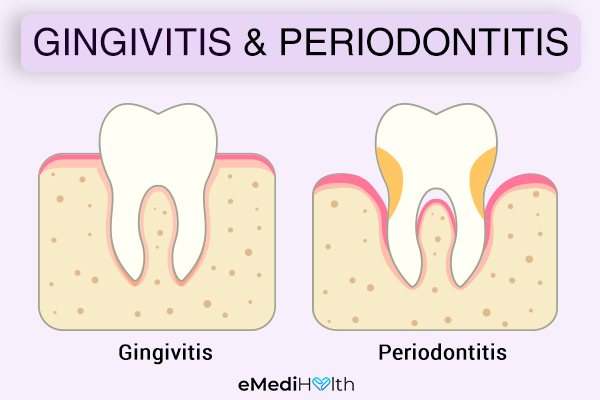
Gingivitis, or the swelling in your gums, caused by plaque buildup, makes the bases of your tooth vulnerable to infection and rampant decay.
An untreated case of gingivitis may cause an actual infection of the gums called periodontitis. This form of gum disease can become extremely painful in advanced stages. It may even lead to loss of the affected tooth. Thus, gingivitis is a precondition for periodontitis.
Final Word
Gingivitis is a gum disease that generally doesn’t cause any pain and thus often goes unnoticed.
Therefore, it is essential to set regular checkups with your dentist to identify any oral health problems at the earliest. Additionally, make sure to follow a proper oral health regimen to help prevent gingivitis.

- Was this article helpful?
- YES, THANKS!NOT REALLY



